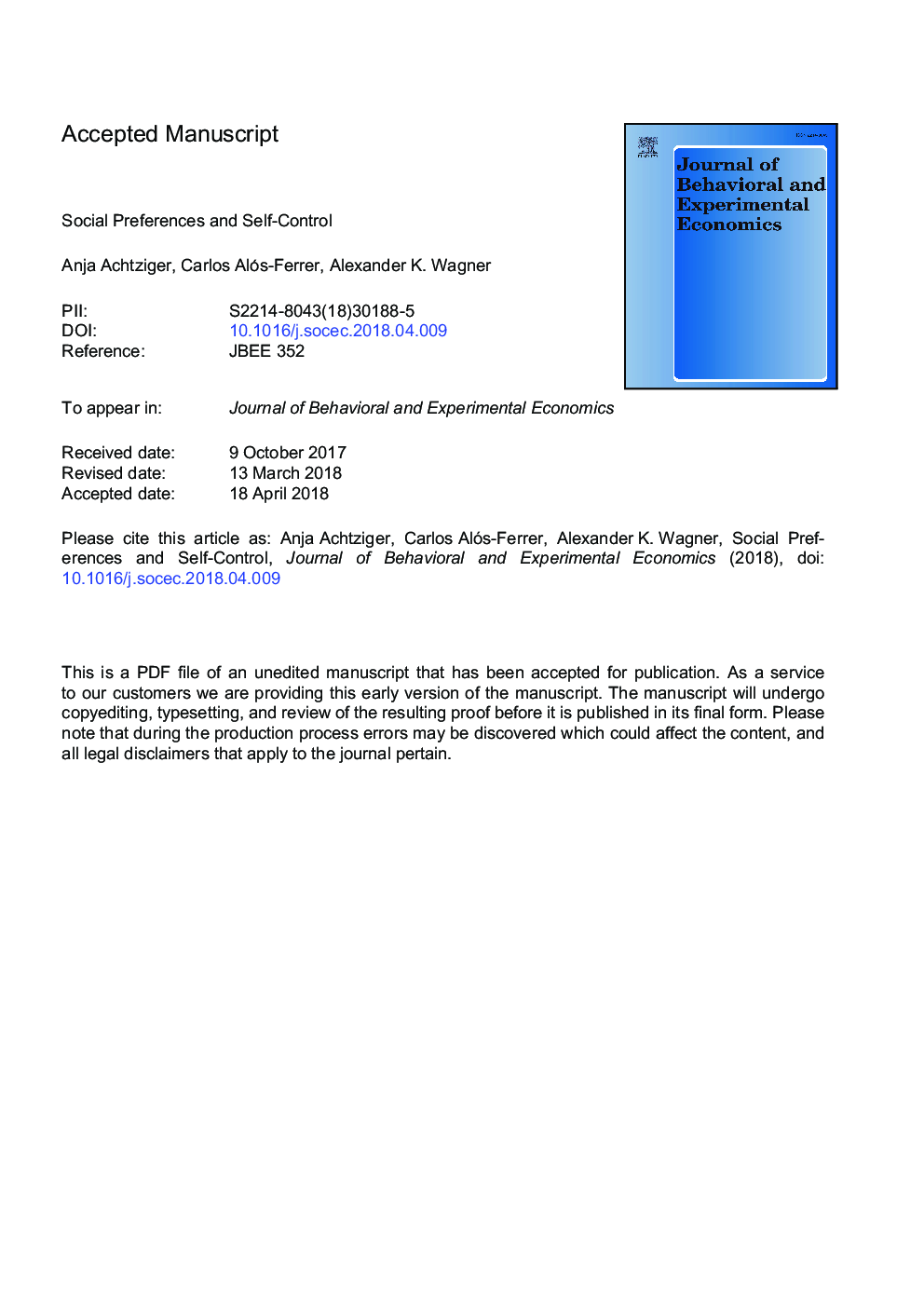| Article ID | Journal | Published Year | Pages | File Type |
|---|---|---|---|---|
| 7241968 | Journal of Behavioral and Experimental Economics | 2018 | 19 Pages |
Abstract
We provide new evidence on the impact of diminished self-control on social preferences in the ultimatum game. In a sample of German university students (N=312), depleted proposers made lower offers, and depleted responders rejected unfair offers as often as non-depleted ones. This agrees with previous evidence on the Dictator Game but stands in contrast with a previous study with a sample of Spanish university students. A possible explanation is that selfish motives are the default mode of behavior, but there is individual heterogeneity on whether strategic fairness (fear of rejection) can overcome them.
Related Topics
Social Sciences and Humanities
Economics, Econometrics and Finance
Economics and Econometrics
Authors
Anja Achtziger, Carlos Alós-Ferrer, Alexander K. Wagner,
